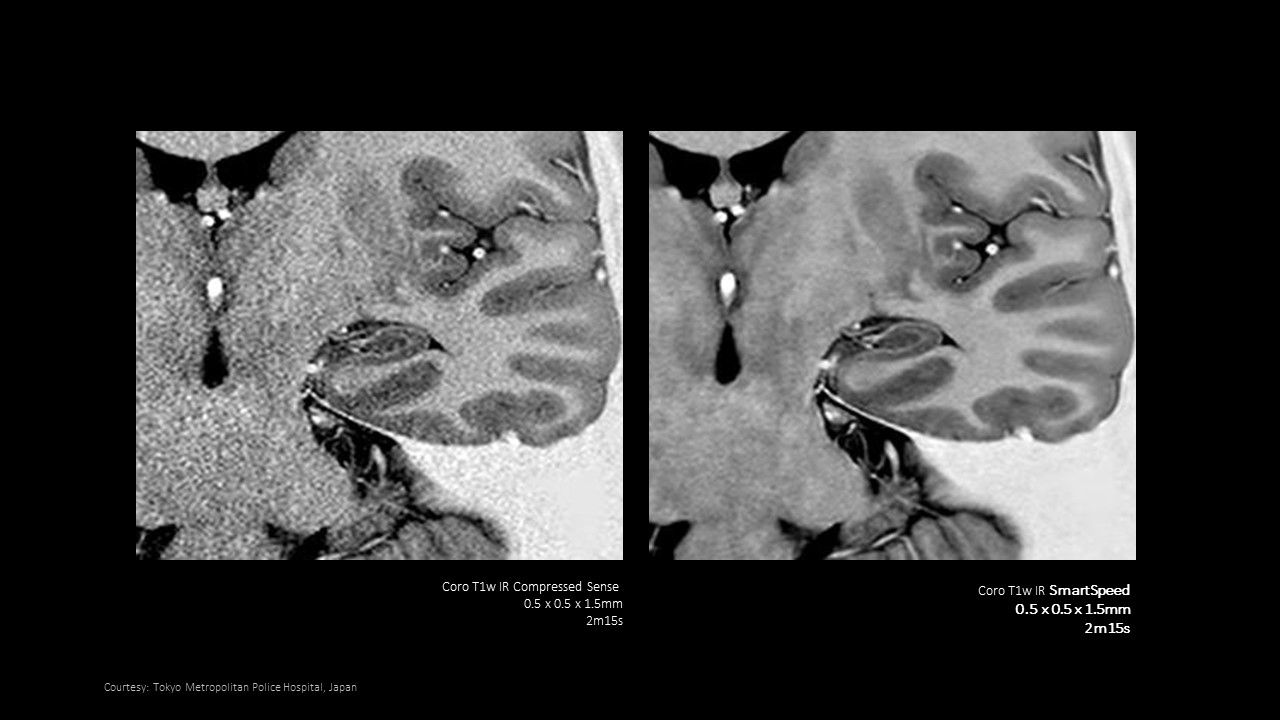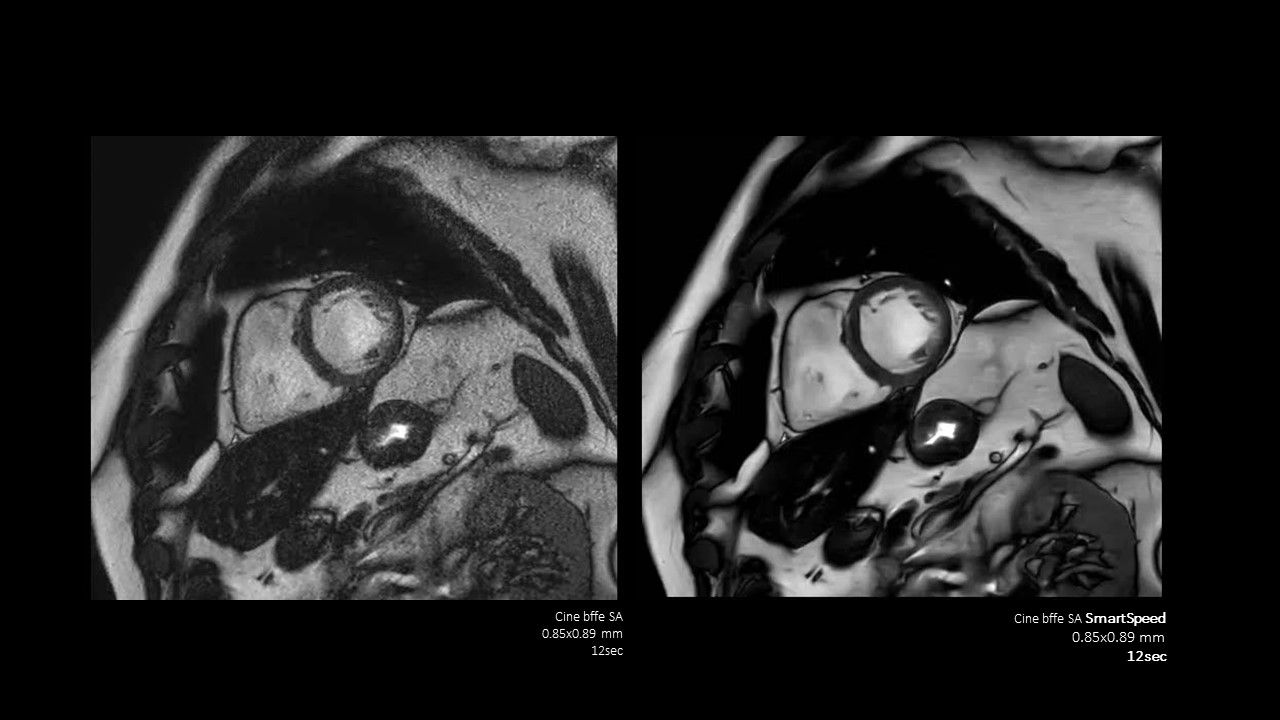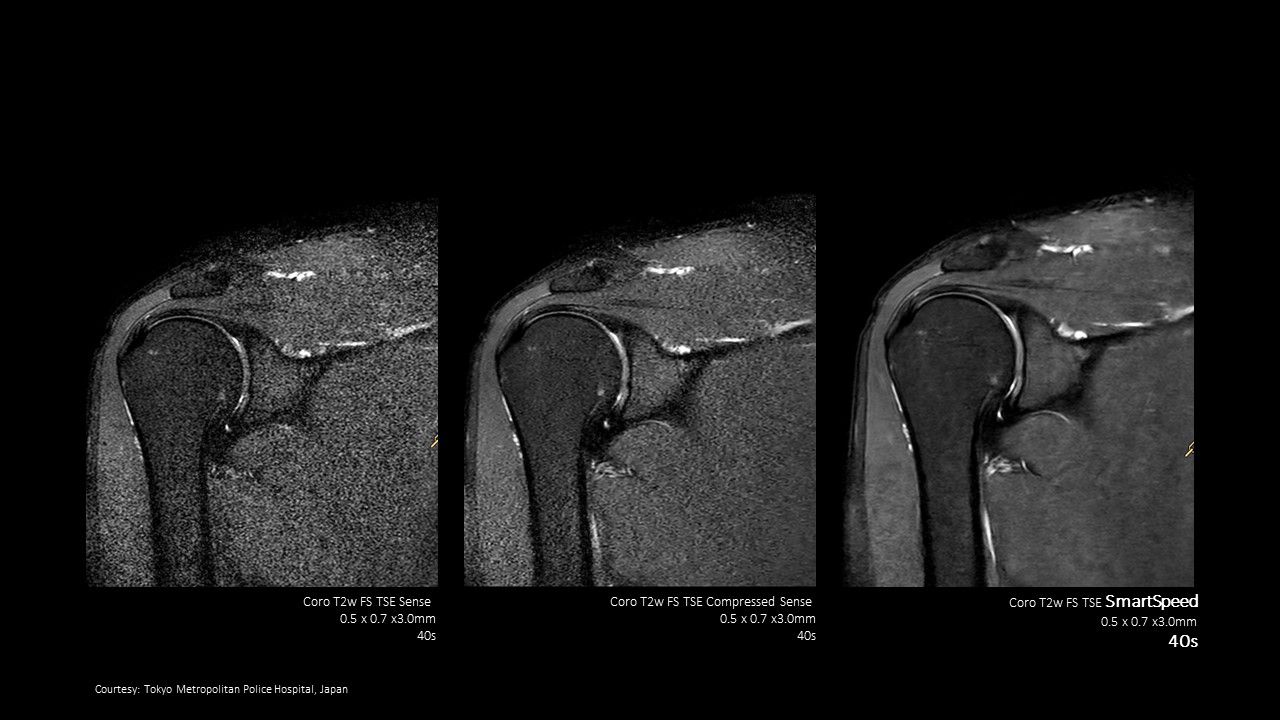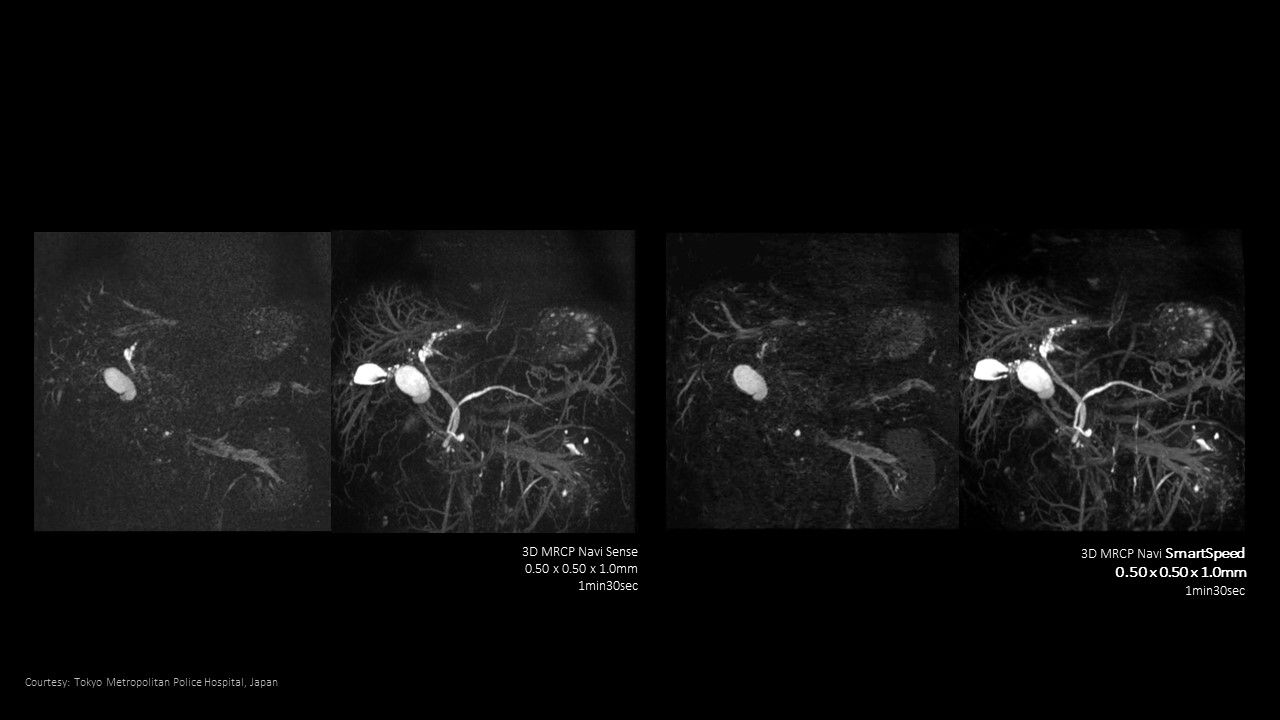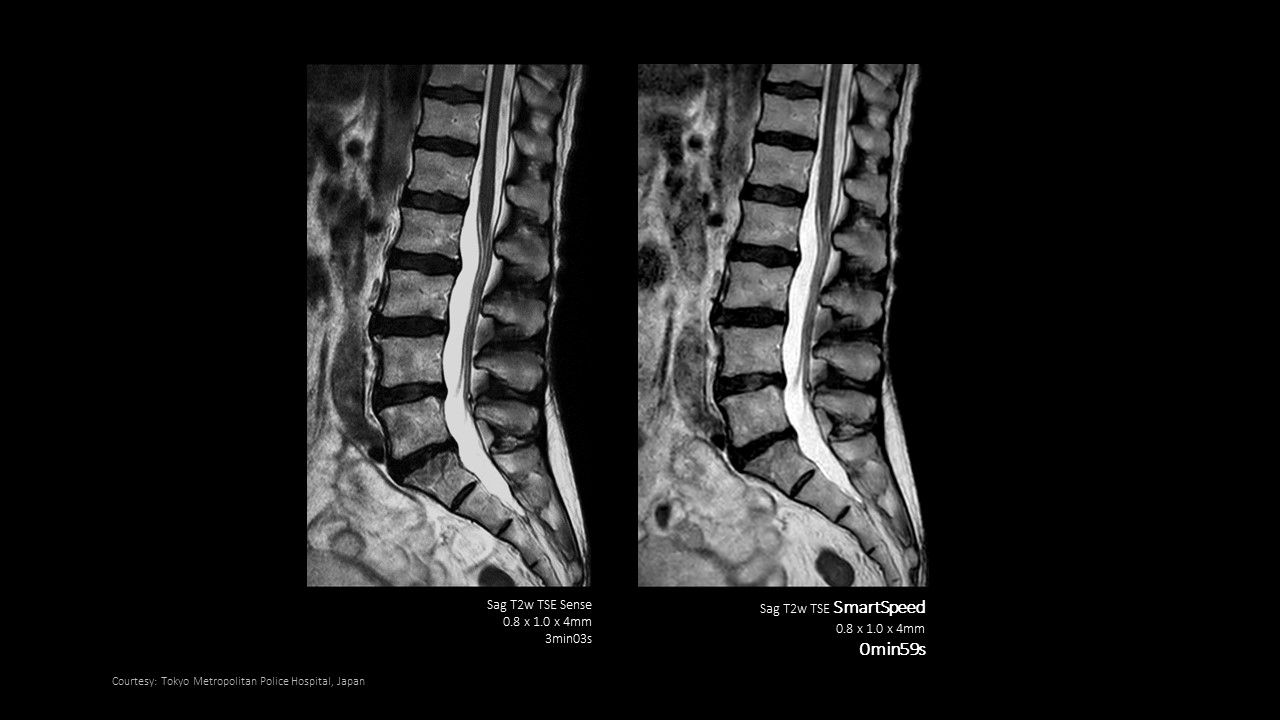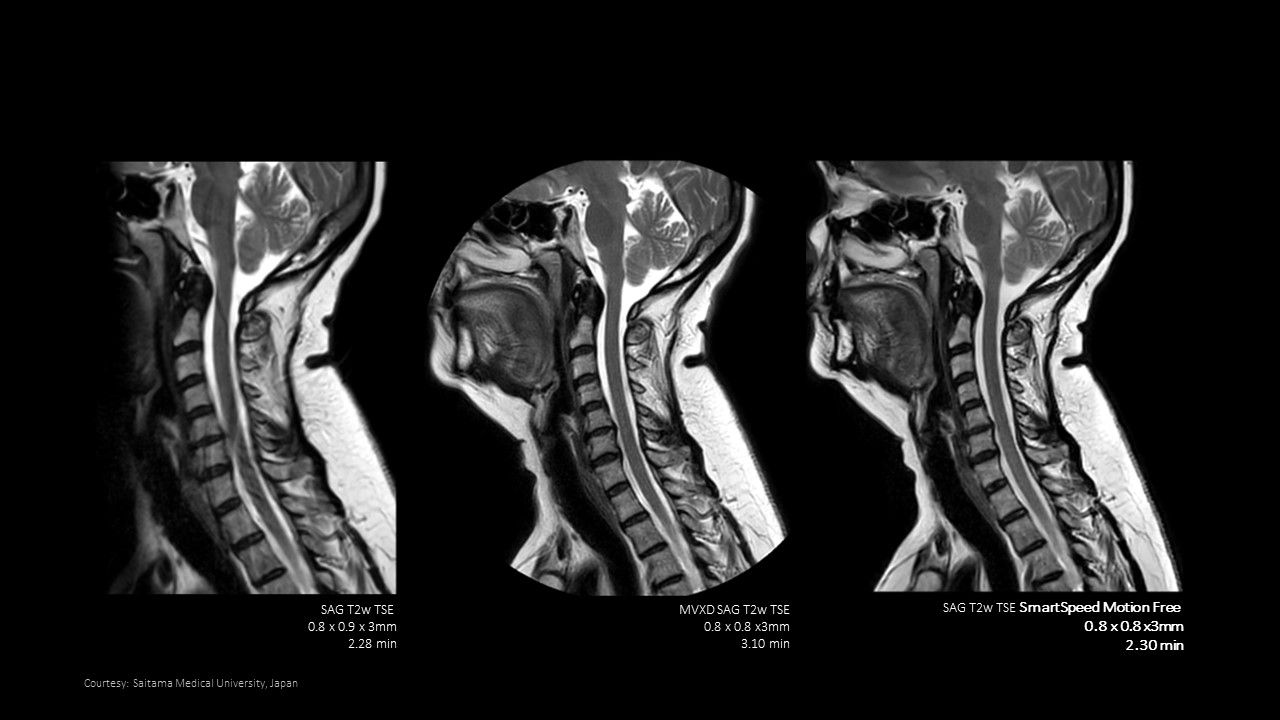
Magnetic Resonance
MR SmartSpeed
Increase speed and image quality, driven by Artificial Intelligence
Philips SmartSpeed is a cutting-edge MRI acceleration technique that expands the proven Compressed SENSE technology, broadening its scope to previously untouched imaging protocols by enhancing the image reconstruction with AI algorithms applied early in the reconstruction process. SmartSpeed increases your imaging speed by up to a factor of 31, provides up to 65% greater resolution1 to deliver outstanding image quality and is compatible with 97% of clinical protocols2 to address the needs of a broad range of your patients in various conditions.
Philips SmartSpeed
Fast high-quality imaging with AI
SmartSpeed increases image quality and speed to enhance your patient and staff experience and boost diagnostic imaging confidence.
Demonstrated results of MR SmartSpeed
Scan up to three times faster
By scanning up to three times faster1 and helping to reduce the total exam time, SmartSpeed can increase MRI department productivity and reduce the cost per exam. You can use the time gained to scan more patients and reduce the cost per scan, to add unplanned patients to the schedule and to reduce staff overtime.

Achieve up to 65% higher resolution
By providing higher resolution1, SmartSpeed delivers outstanding image quality so that radiologists can feel confident when providing information to the referring physician. Because SmartSpeed applies deep learning AI reconstruction at the source – as close as possible to the beginning of the image acquisition process – it enables k-space data consistency check for trustworthy AI and minimizes data loss. And less data lost means more information in the reconstructed image.

Applicable for 97% of exams
SmartSpeed is compatible with 97%2 of clinical protocols, so you can use it to address the imaging needs of the vast majority of your patients. It has been trained on an extensive set of data so that it can be used not only with 2D sequences, but also with 3D sequences, as well as for all anatomies and a wide variety of advanced contrasts such as DIXON for fat-free imaging, angiography, SWI and even quantitative imaging such as T1- or T2-mapping. SmartSpeed is also compatible with non-cartesian imaging for uncooperative patients or challenging anatomies that are sensitive to motion

Image gallery
Perform fast and high quality neuro imaging with a single quantification scan
Smart Quant Neuro, a combination of AI reconstruction technology and quantitative MR, is designed to allow you to perform fast and high-quality MR imaging of Neuro with a single quantification scan to increase your diagnostic confidence.

1/3



Frequently asked questions
Footnotes
- Compared to Philips SENSE imaging.
- On average, measured across a sample of sites from Philips MR installed base.
- Adaptive-C-SENSE-Net technology is the winner of the FastMRI Challenge hosted by Facebook AI Research and NYU Langone Health (2019).
- as of 2021.
Disclaimer
Results are specific to the institution where they were obtained and may not reflect the results achievable at other institutions. Results in other cases may vary.
